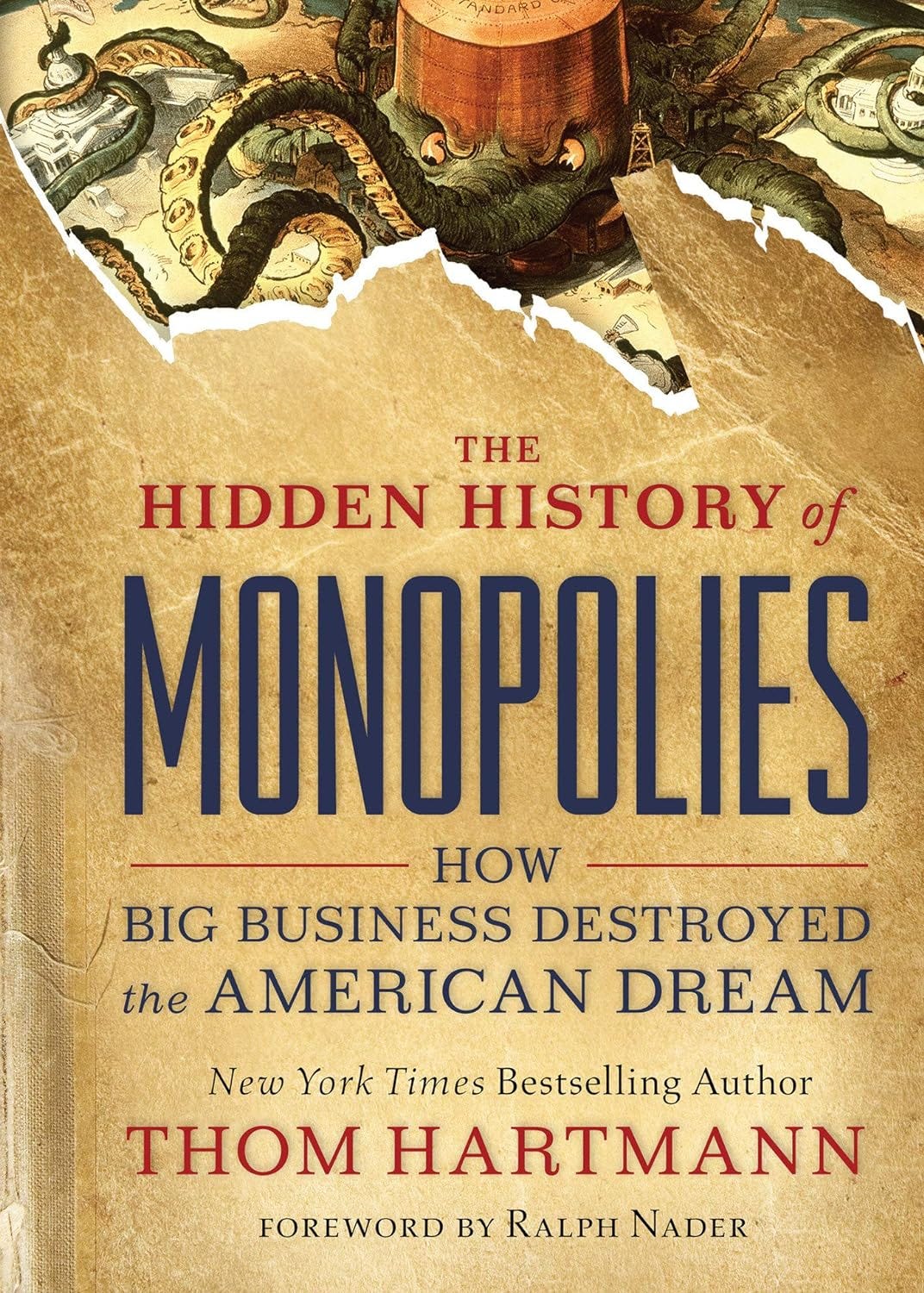Solution: Replace the “Consumer Welfare” Framework
Your weekly excerpt from one of my books. This week: "The Hidden History of Monopolies: How Big Business Destroyed the American Dream"

Solution: Replace the “Consumer Welfare” Framework
Robert Bork’s consumer welfare framework for determining if a company is a monopoly concerns itself with only two outcomes:
1. Low prices for consumers
2. High returns for investors
But if a company is concerned only with consumers and investors, then it is going to squeeze everything else, from environmental protection to wages and worker safety to product quality. This is also an incentive to cut labor expenses by merging with other companies and eliminating entire departments. The new company won’t need two sales, HR, or accounting departments; tens of thousands of jobs are typically lost in large mergers.
Bork’s policy, now America’s policy, means that companies now cut pensions as a way of cutting liabilities. It means that all firms are encouraged to cut corners on environmental, workplace, and consumer protections, and to lobby endlessly to kill those protections entirely.
Corporate stakeholders should include workers and their unions, who arguably have the greatest interest in maintaining the solvency of a corporation, because their wages depend on it.
An extension of the workers and their families’ stake in locally owned nonmonopolistic companies are communities as a whole. We’ve seen across America’s Rust Belt, where once-thriving towns and cities have been mired in deepening despair since the 1980s as a result of neoliberal trade policies, the fruits of trickle-down Reaganomics, and the adoption of Bork’s consumer welfare framework.
In some industries, such as heavy manufacturing and chemical processing, the impact on the environment is clear and immediate in the form of pollution discharged into the air and waterways. But every corporation has an environmental footprint.
Cloud-based companies are dependent on stable power production, which means that massive servers like Amazon Web Services can have equally massive carbon footprints. With more and more goods being shipped across the United States, the wear and tear on our nation’s roads not only is a concern for infrastructure but also means increasing environmental costs associated with asphalt and tire debris in the air and runoff directly from the roads, along with salts and de-icers in the winter—all costs that are dumped onto the public and the commons.
Finally, there is the corporation itself. A corporation can be a positive institution in a community—a touchstone for workers and families to gain dignity for their work, and for the community to take pride in the manufacture of goods that are distributed across the country.
That sense was lost to Bork’s doctrine as corporate raiders and vulture capitalists like Carl Icahn and Mitt Romney began to gobble up corporations and strip their assets (this is the crux of the plot of Oliver Stone’s Wall Street).
All of these stakeholders (workers, families, communities, the environment, competing corporations, governments, and the corporations themselves) can either benefit or be hurt by a large corporation’s actions. All are ignored by Bork’s doctrine.
The solution is to reverse Bork’s community-killing consumer welfare framework and return to real antitrust regulation, like what we had in part from Senator John Sherman’s time until the Supreme Court and Reagan put Bork’s bizarre theory into practice.


